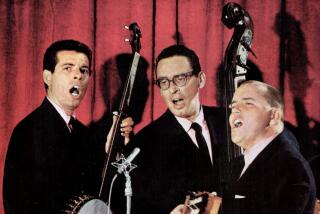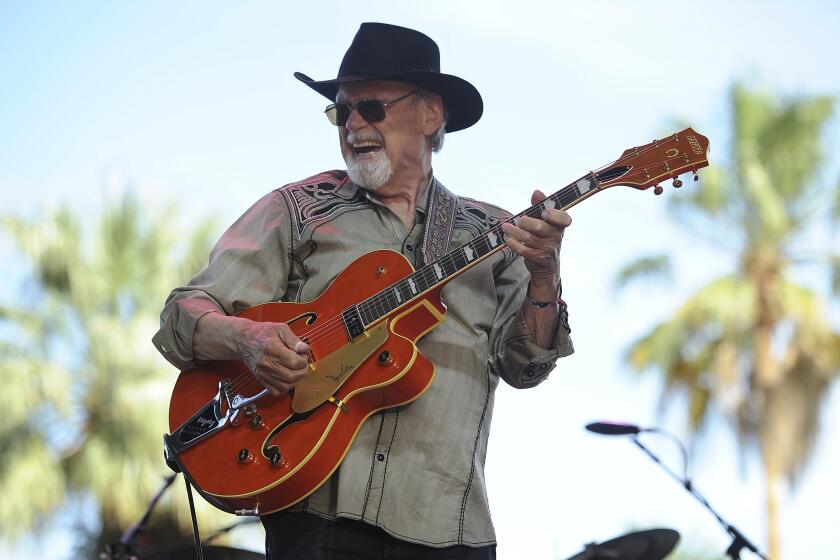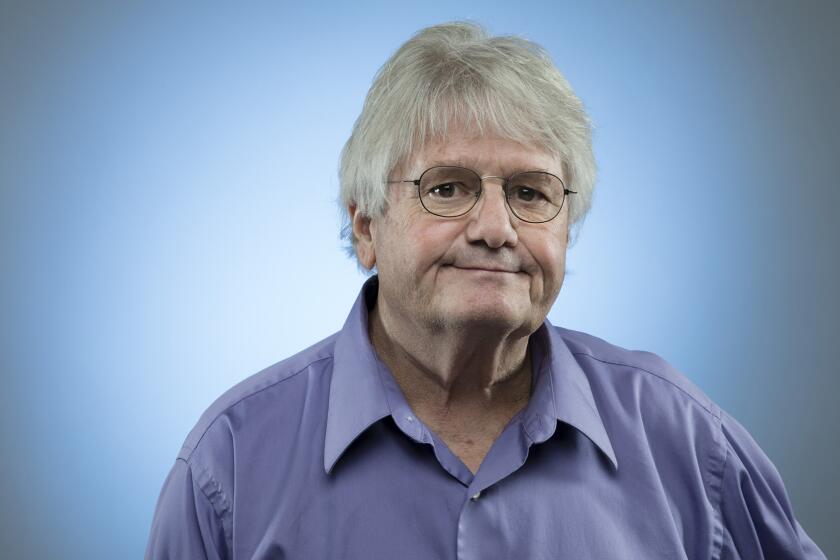Tuli Kupferberg dies at 86; founding member of the underground band the Fugs
Tuli Kupferberg, a founding member of the underground left-wing 1960s band the Fugs as well as a poet, political cartoonist and lifelong peace activist, died Monday in New York. He was 86.
Kupferberg’s health had been declining since he suffered two strokes last year that left him blind, according to Ed Sanders, with whom he formed the Fugs in New York’s Lower East Side in 1964.
Earlier this year, producer Hal Willner coordinated a benefit concert in New York featuring dozens of musicians who cited the Fugs as an influence, including Lou Reed and Laurie Anderson, Sonic Youth, Philip Glass and Lenny Kaye from the Patti Smith Group.
“It’s hard to imagine a world without Tuli Kupferberg, and New York will never be the same,” Willner told The Times on Monday by e-mail. “More than anything, Tuli was someone who you never heard a negative thing about and everyone was always happy to see him … a rare quality.
“With his poems, songs and parodies, he always cut to the chase and got right to the point of what it was he was getting at — always incredibly insightful, biting yet done with hysterical yet simplistic humor that one could not argue with his point of view,” Willner noted.
Kupferberg had been too ill to attend the benefit show but sent a short video that concluded with him telling the audience, “Now go out there and have some fun. It may be later than you think.”
Kupferberg wrote the lyrics for one of the Fugs’ signature songs, “Kill for Peace,” which the band played at its concerts as the Vietnam War was escalating in the mid-’60s.
He also wrote “Nothing, Nothing,” a nihilistic song set to the melody an old Yiddish song, which helped set the stage for the art rock outfits such as the Velvet Underground in the late ‘60s and much of the attitude of ‘70s punk music.
“The Fugs were right on the barricades of what was possible,” veteran music industry executive Danny Goldberg told National Public Radio in April. “There was a fearlessness, an intensity, an unwillingness to pander to any commercial norms that was very exciting.”
In addition to making music for years with Sanders, Kupferberg continued to publish his poetry, sometimes selling his works on street corners in and around his longtime home in Greenwich Village. He also was the author of books that became minor counterculture classics, including “1001 Ways to Beat the Draft” and “1001 Ways to Live Without Working.”
Naphtali Kupferberg was born Sept. 28, 1923, in New York City. He attended the Brooklyn College of Arts, studying, among other topics, sexual freedom in the institution’s New School of Social Research. He published poetry magazines including Birth, which attracted the attention Allen Ginsberg and other Beat poets.
When he and Sanders started the Fugs in 1964, Kupferberg was 41, a generation older than Sanders and young rock stars like the Beatles. After the group reunited in 1985 to embark on making another string of albums, Sanders wouldn’t reveal Kupferberg’s age, telling The Times only that his band mate was “ready for Medicare.”
Although he stopped performing with the Fugs several years ago, Kupferberg continued writing, selling political cartoons on the street and posting homemade videos on YouTube, including a recent one, “I Am an Artist For Art’s Sake,” that crystallized much of his approach through life:
“I am an artist for art’s sake,” he sang. “It was God who gave me my big break. I was born for a higher reason, and all his angels I am pleasing. I’m an artist for God’s sake.”
Kupferberg is survived by his wife, Sylvia Topp, and three children.
More to Read
Start your day right
Sign up for Essential California for the L.A. Times biggest news, features and recommendations in your inbox six days a week.
You may occasionally receive promotional content from the Los Angeles Times.






